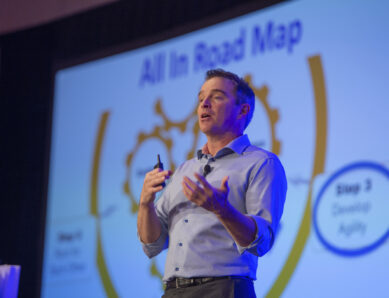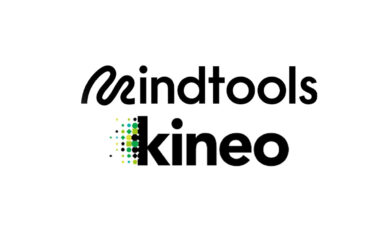What keeps you motivated at work? Is it great people, interesting projects, or generous perks? Author and consultant Adrian Gostick surveyed more than a million people and found a surprising answer – one of the most effective motivators is simply a personalized thank you.
“In the highest-performing organizations, managers recognized excellence,” he tells me, in our Expert Interview podcast. “That’s how their employees defined this over and over again: ‘When I go above and beyond, my manager notices and rewards that behavior in a way that is meaningful to me.'”
Unexpected Thanks
This certainly rings true for me.
I still have a note from a radio station manager, handwritten years ago, thanking me for creating a “consistently good” radio show, with interesting content and high-quality sound. “He listens!” I thought at the time, delighted. “To me!”
This unexpected expression of thanks boosted my motivation and kept me working hard on the graveyard shift, night after night.
According to Adrian Gostick, bespoke, personal thanks like this packs a powerful punch. It’s one of the tips in his new book, “Leading with Gratitude: Eight Leadership Practices for Extraordinary Business Results,” which is co-written with his long-time collaborator, Chester Elton.
The Two Sides of Gratitude
The authors see gratitude as a two-part process. The first part is seeing – not just what a person is doing, but how that work adds value to the team and the organization.
Beyond that, you also need to see past the work, all the way to the individual and what’s important to them.
This is crucial to the second part of the process – expressing gratitude. This must be personalized, whether it’s a hand-written thank you (like the one I received), a quick word in a corridor, or a thoughtful reward.
If the thanks isn’t tailored to the person receiving it, it’s barely worth expressing. To illustrate, Gostick recalled an anecdote about a manager who liked to show his gratitude with Starbucks cards. “It didn’t matter if you cleaned out the supply cabinet or you saved a $1 million client, you got the $5 coffee card,” Gostick recounts.
The manager insisted that people loved this system. Skeptical, Gostick suggested he ask a few of them, just to check.
So he did, and discovered that one of his team, who didn’t like coffee, had been giving the gift cards to a neighbor. With a jolt, the manager realized he’d been rewarding his employee’s neighbor for years.
Peer-to-Peer Recognition
One of Gostick’s most useful tips is that anyone can help to build a culture of gratitude in the workplace, not just team leaders.
In fact, “Peer-to-peer recognition and gratitude is overtaking top-down,” he says. And he shares a perfect example from his own company, the Culture Works.
One day, Gostick dropped by the office to collect something and found the team gathered in a group. One of his trainers, Chris, was thanking their logistics person, Barbanne.
“Chris had got to a city and realized he had no training materials,” Gostick says. “The materials hadn’t arrived, so he called in a panic. It’s after five, Barbanne was still there and said, ‘I’ll take care of you.'”
“She grabbed some materials and found the last FedEx location out by the airport which would take a delivery at 7 p.m. and at 9 o’clock the next morning Chris had his materials in a different city, and he felt, ‘Oh my gosh, I’m saved.’ So [now], he is recognizing her… he’s just thanking her for her dependability, for her ownership of that issue.”
Gostick had stumbled upon this “recognition moment” by accident, and he was moved by how meaningful it was for his team.
Breaking Silos With Gratitude
In another memorable example, he tells us how peer-to-peer recognition helped one company break down silos. Weekly staff meetings, which included all 60 employees, always started with recognition. Random people would be asked to recognize somebody in another department who had helped them the previous week.
“So, John in sales was asked, who are you going to recognize today? And he said, ‘I think I will recognize Aaron in accounting, because when I sell a deal Aaron always jumps in and talks to the client and makes them feel great about their purchase and gets the accounting working, so I want to recognize Aaron.’ So, the boss would give Aaron a gift certificate,” Gostick recalls.
This created a sense of one big team, “because everybody was worrying about who else they could help during a given week.”
Gostick makes a strong case for the power of gratitude at work. Maybe the way to get more recognition is to give more. Who can you thank today?
Listen to Our Interview With Adrian Gostick
Discover fascinating insights from some of the world’s leading business figures with our monthly Expert Interviews.
Mind Tools Premium and corporate members can listen to the full 30-minute interview with Adrian Gostick in the Mind Tools Club.
If you’re not a Mind Tools member, you can join the Mind Tools Club and gain access to our 2,400+ resources. For our corporate solutions, take a look at our Emerald Works site.




